67%? I knew I had not done well on my first test, my freshman year at college, but that number was unthinkable. I’m the one who would freak out if my As got close to Bs. For me, this number wasn’t even on the map. Ouch. The test had been unlike anything I ever saw in high school. It was multiple choice but the answers were A through F, and I was to mark all or none that applied. Before this, my hardest tests were true or false, something I always managed to overthink and stress over. This was really depressing.
Should I just quit now?
As I shared with you in an earlier article, A note to teachers…“maladaptive” perfectionism contributes to anxiety and depression. It is easy to think if we did something bad, we are bad. But personalizing it or making one defeat convince you that you have lost everything just doesn’t help. When we are caught in these kinds of thoughts, it seems like we can try and fail or we can quit and fail. It doesn’t seem worth the effort to keep trying. Maybe I should have just quit school since it was obvious that I wasn’t cut out for college classes.
Don’t be a chip for a dip
Seth Godin points out in his book, The Dip, that it is normal to have a “dip.” The challenges and problems that come up when we try something new or important are frequent, and surprise, challenging. Most of the effort, before we see the benefits, is at the beginning. And, I would like to add, also after a big mistake or fall. That is like falling right back into the “dip.” The question isn’t if  there will be any dip. The question is, am I going to drown in it and get eaten up by it, or am I going to dig my way back up and out? Sometimes it really isn’t worth it. Godin suggests that if you aren’t committed enough to stick with it until you get out of the dip, it is a good idea to quit and quit early, cutting your losses. Investing in a cause that you will just quit when the going gets tough is really a waste of time, because it will get tough.
there will be any dip. The question is, am I going to drown in it and get eaten up by it, or am I going to dig my way back up and out? Sometimes it really isn’t worth it. Godin suggests that if you aren’t committed enough to stick with it until you get out of the dip, it is a good idea to quit and quit early, cutting your losses. Investing in a cause that you will just quit when the going gets tough is really a waste of time, because it will get tough.
“Adaptive” Perfectionism embraces mistakes and failure
I have a friend who “gets” this. She put on Facebook a picture of a party they had for her son celebrating her child trying out and not making the team. In the movie, Meet the Robinsons, the funny, inventive family also celebrates a royal failure. Why? Because their motto was to “Keep Moving Forward.” “Adaptive” perfectionism leads to high-achieving happiness, I think largely because mistakes are not a failure. Mistakes and failures are temporary challenges on the path to success. If her son never tried, he certainly never would make it on the team. The fact that he didn’t make it is secondary to the fact that he tried, he can learn from it, and if he chooses, he can try again. He has courage, confidence, and family support come what may. Sometimes we too easily give up on ourselves. A big mistake is like losing a battle, but quitting because of it is like losing the war.
Anticipation and Recovery
In a race, it is definitely harder to win if you fall down. The chances of being first are very slim. But if you want to win, what are your choices? You have to get back up. You have to get back up quickly, and you have to run harder than ever before to make up for it. The past is always in the past, but I have noticed that when I take time to cry about it, I am also wasting the present. Sometimes the best thing we can do is get back up, learn from it and try again. I don’t have to expect to always fall, but I can anticipate that possibility and have a recovery plan. I can decide that if I fall, I won’t let it bother me, I will pick myself up and move forward, faster as long as I can. I can also be a friend to myself come what may. That is easy for me to do when I literally do my best. If not, it can be hard to look in the mirror. We can’t always prevent mistakes, but we can recover from them.
Learn from the experience
It is overused advice to learn from your mistakes. But, if we can see them for the opportunity they are, we can almost welcome and celebrate them. I slept through my alarm and missed my class. What can I do about that?
Make a backup plan for key processes
If one alarm won’t do it, why not use two or three? Why not put all three of them far across the room? Use one or two that don’t reset if the power goes off. If getting up on time is that important to winning with your investment of time and energy then, isn’t it worth it? We can aim for early, that way if there is illness or technical difficulty, there is time to deal with it before the big catastrophes happen. For example, I try to go to work 5 minutes away 30 minutes early. Why? Because I can walk there in 20 minutes. If my car has a flat or my child has to go to work and we forgot to coordinate the car, I can still get there in time. It is that important to me to be dependable. I don’t waste the time. I use the early time to set up the room, calm my thoughts, and enjoy building relationships with those in my class. We can’t, of course, anticipate and leave enough time for all possible problems, but we can prepare and prevent predictable ones.
Practice acceptance and quickly move on
 I have noticed that often the bigger problem is how I deal with the mistake. I make it worse by getting mad at myself for not being smarter, wiser, etc. It is especially hard when I know better and was lazy or not careful anyway. Beating myself up catches me in endless loops of wishing and should having. Mentally kicking myself when I’m down has never helped me to get up. Instead it just wastes time and hurts my confidence.
I have noticed that often the bigger problem is how I deal with the mistake. I make it worse by getting mad at myself for not being smarter, wiser, etc. It is especially hard when I know better and was lazy or not careful anyway. Beating myself up catches me in endless loops of wishing and should having. Mentally kicking myself when I’m down has never helped me to get up. Instead it just wastes time and hurts my confidence.
Luckily, I didn’t quit. My second test was coming up, so I analyzed the first test. Part of why I did so badly on it was because I got scared by it, but this time, I knew what I was facing. All the complexity of the test melted away when I realized it was just a test with over a hundred true false questions. I could just take each answer individually and see if it was true or false matched with the question. I knew it would be challenging to leave a whole question with answers A-F all blank, but that that also could be the correct answer. So I studied differently, diligently, and for hours before facing the next one. I came out from the test confident that it was much better. I knew it was better, but I couldn’t have imagined it would surprise me more than that 67%. I was shocked when the teacher announced that three students had scored above one hundred percent, and I was one of them. Because I recovered, I scored!
The Fire Bird
Some challenges are so great they figuratively burn us to the ground. A test at school is nothing compared to a child dying, losing your job or your spouse, sudden disability or terminal illness, etc. They are devastating and disrupt our path to the future. We have a hard time moving forward because we don’t know any more what forward even is. We lose some part of our identity, and we are lost.
Fires that burn us to the ground leave us with nothing but an egg, an unknown.
Nothing is the same and may never be again.
We are changed.
But in that moment, we also become the phoenix if we don’t give up. The fire-bird is born in the fire. It is a product of the fire. The same fires that I have worked to prevent all my life are a necessary part of the process, of this birth or rebirth. In a way, there is nothing new. The trauma of life’s tragedies may be new to us, but they aren’t new to our human family.
A fiery plane crash literally redefined Stephanie Nielson. Her life as she knew it was gone. She didn’t recognize herself, and she didn’t see her way forward.
But like her, we can be reborn. We can fly anyway, even if not yet. We might have to wait and draw strength from the ashes, listening for destiny and desire to lead us out of the pit towards possibility. We can, and we must.
Look at history.
It is who we are.
We are the phoenix.
Namaste,
DarEll S. Hoskisson
DarEll S. Hoskisson loves to do hard things, but not too hard. She shares her own challenges, goals and experiences as she guides you into a realistic path of self-reflection and self-improvement. She shares tips on how to find, know and trust yourself so you can decide if other’s suggestions are right for you.
DarEll has the world a little upside down—where work is play and play is work. She actually thinks other people’s problems are fun to try to solve and lights up with a personal challenge. She loves people, harmony, and excellence. She also loves useful things like tools and ideas that make work faster, easier and more fun.
DarEll married in 1993 and graduated from BYU (1995) with a bachelor’s degree in English and Secondary Education. Since then she was adopted by 5 children and has worked with many non-profits. She is currently a certified personal trainer and group fitness instructor—leading pilates and yoga at her local YMCA.
DarEll lives in Florida where she enjoys her family, nature, her work, and encouraging people to live well.
She periodically posts her poems, what she is learning, and service opportunities on her personal blogs:
https://personalabridgements.wordpress.com and https://darellhoskisson.wordpress.com

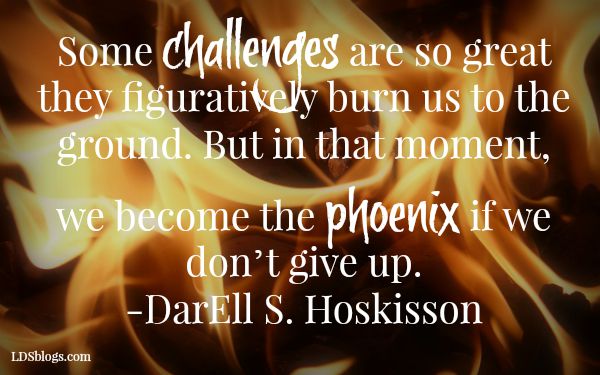
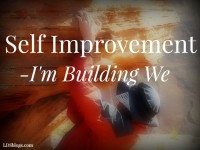
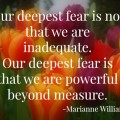
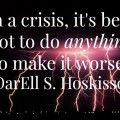
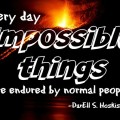
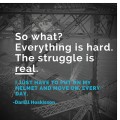

I loved this article. Of course, I love all of your articles. They are very interesting as well as educational. Grandma Florence